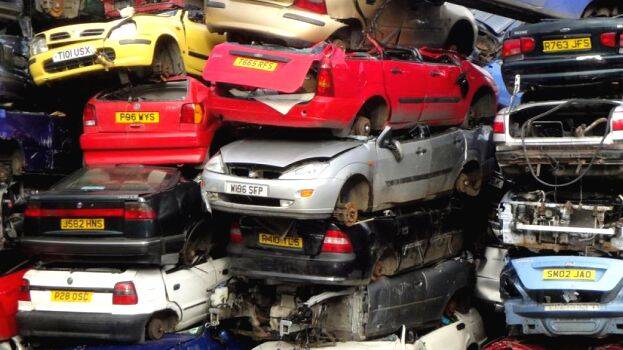

While the center's new vehicle policy may be disappointing for those who care for vehicles like their own children, there are a number of nice benefits when looking at other aspects of the policy. The contribution motor vehicles make to air pollution is alarming. You can see umpteen older vehicles being used however old it is. Although commercial vehicles have periodic fitness tests, they continue to operate unhindered, polluting the air and violating laws and regulations. The pollution created by old passenger buses in the states is not insignificant.
The Centre has made several attempts to phase out old vehicles and remove them from the roads in stages. Each time the decision had to be reversed in the face of strong protests. It is against this backdrop that the Center has now come forward with firm decisions. The new policy is to have all types of vehicles ‘euthanized’ at the end of their life. According to this, the lifespan of a private passenger vehicle like a car will be twenty years. Commercial vehicles such as trucks and buses will have to be removed from the streets when they reach the age of fifteen. Such vehicles may take a few more years to cross the fitness threshold, but they are not easy to get through. The solution is to break them down. As in rich countries, the Center will encourage the opening of state-of-the-art vehicle demolition centers here. Demolition centers are coming up all over the country like the existing car dealerships. The Center will issue guidelines on what this center should look like. Centers can be started accordingly. As it is a costly arrangement, only large companies can undertake this venture.
The importance of the new policy is that it will be extremely beneficial not only to the environment but also to the economy of the country. It is estimated that more than three crore new and direct jobs will be created. Initially, more than 35,000 people will be directly employed in the demolition centers. As older vehicles leave the streets, the auto market will be gearing up for a big leap. At present, the vehicle market turnover is around Rs 4.5 lakh crore, which is expected to touch Rs 10 lakh crore with the full implementation of the demolition policy. Older vehicles are more prone to pollution and fuel costs. The condition stipulates that all types of government owned vehicles should not be used for more than fifteen years. The new policy for other vehicles will be implemented in phases over the next three years. Currently, 51 lakh cars in the country are more than 20 years old. Those over 15 years of age will come up to 34 lakh in numbers. The government has also announced benefits for those who volunteer to demolish their vehicles when they expire. Road tax will be waived when buying new vehicles. Vehicle dealers will be required to pay a discount of five to six per cent on the price. There is no registration fee for new vehicles.
Of course, the new impetus that the automotive market is going to achieve will be reflected in the overall industry growth. At the same time, the electric vehicle manufacturing sector, a new wave in the automotive market, needs to be further developed in the country. The Modi government had earlier said that electric vehicles would dominate the streets in the country over the next decade. For that to happen, more electric vehicle manufacturers need to be ‘born’. More research is needed on batteries, an essential component of electric vehicles. Although much progress has already been made in this regard, a number of changes are still to be made in terms of pricing in anticipation of expanded production. Similar research and experiments should be carried out along with the implementation of the demolition policy.
Explaining the demolition policy, Union Transport Minister Nitin Gadkari said in a statement in Parliament on Friday that toll booths across the country would be abolished within a year. The aim is to make toll collection completely fast tagged. This update is already in effect. Vehicles without a fast tag are currently charged double the toll. Ninety per cent of vehicle owners have switched to fast tags, the minister said. The rest will have to adopt the new system. With that, the toll plazas on the highways can be completely demolished. With the introduction of toll collection through the fast tag, the average daily revenue has crossed over Rs 100 crore and the Highway Authority has benefited. Previously there was not even a third of this. The harvest of contractors and intermediaries has come to an end. There should be better roads with new changes. Although the construction of highways is progressing fast, the smooth flow of traffic will be possible only if the state highways reach that level.